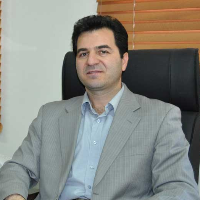The effects of biosolid application on soil chemical properties and Zea mays nutrition
The application of biosolid as a fertilizer in agricultural cultivation is a common practice in many countries. This study investigates the effects of sewage sludge and compost usage on soil chemical properties and Zea mays nutrition in comparison with those of iron and manganese sulfate solution. The experiment was carried out in a completely randomized block design with the following treatments: sewage sludge and compost with three levels (0, 25 and 50 t ha−1 ) and iron and manganese sulfate solution (1 g l−1 solution) with three replications.
The application of sewage sludge (50 t ha−1 ) had highly significant (P < 0.01) positive effects on cation exchange capacity and organic matter, total nitrogen, phosphorus, iron and manganese diethylenetetramine-pentaaceticacid-extractable in soil, and nitrogen, phosphorus, iron and manganese in plant. Also, compost application (50 t ha−1 ) increased significantly (P < 0.01) the electrical conductivity in soil and potassium in soil and plant. Dry biomass increased significantly (P < 0.01) from 7.7 to 28.7 g per pot with sewage sludge application (50 t ha−1 ).
Application of biosolid as fertilizer sources has become a common practice in Iran, especially in the agricultural lands. The reuse of these nutrients had some beneficial effects on soil fertility, such as increased cation exchange capacity, pH, organic matter, total nitrogen, phosphorous, iron and manganese. However, these benefits were limited by the presence of some potentially toxic trace metals in biosolid.
Sewage sludge , Compost , Iron , Manganese , Zea mays , Plant nutrition
-
The Effect of Tube Settlers on the Removal of Suspended Solid and the Filters Backwash Energy Saving in the Isfahan Water Treatment Plant, Iran
Mohsen Memarzadeh, Mozhgan Ahmadi-Nadoushan*, Payam Najafi,
Journal of Health System Research, -
Germination ability of barley, wheat, quinoa, and oat plants under salinity and heavy metals(Pb,Zn and Cd)stress
Peyman Khalili, *, Mozhgan Ahmadi Nadoushan, Atefeh Chamani
Journal of Animal Environment,


